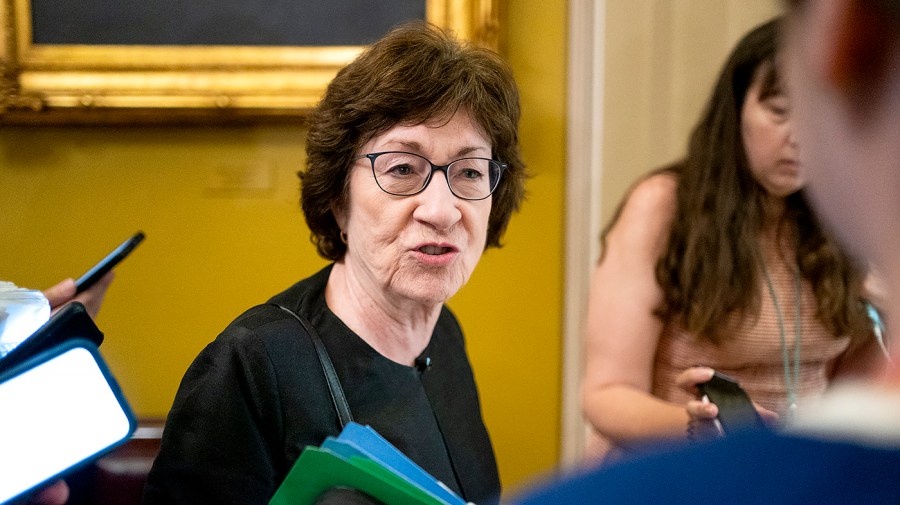Senate Republicans including Sen. Susan Collins (Maine) say a new proposal to create a $15 billion relief fund for rural hospitals is not adequate to make up for tens of billions of dollars in federal Medicaid funding cuts included in the Senate megabill to enact President Trump’s agenda.
Collins told reporters Wednesday that the $15 billion relief fund floated by the Senate Finance Committee is likely not the final offer from Senate Republican leaders to address the concerns of several senators who worry the bill’s cap on health care provider taxes could put scores of rural hospitals out of business around the country.
“The Finance Committee has not made a final decision. It is accurate that I believe we need [a] $100 billion provider-relief fund. I don’t think that solves the entire problem. The Senate cuts in Medicaid are far deeper than the House cuts, and I think that’s problematic as well,” she said.
“Obviously any money is helpful, but no, it is not adequate. But I do not know for certain that that is where the Finance Committee has landed,” she said.
Sen. Lisa Murkowski (R-Alaska) is also skeptical that $15 billion would be enough to offset the Senate bill’s impact on small rural hospitals, according to a Senate GOP source familiar with the internal debate.
A Republican senator familiar with the Finance Committee’s proposal confirmed the panel has offered a $15 billion relief fund for rural hospitals.
The senator said that roughly half of the fund would be available to rural hospitals around the country and the other half would be targeted to specific hospitals chosen by the Centers for Medicare and Medicaid Services.
“That doesn’t mean they won’t adjust it,” the senator said. “There will be a fund. Right now it’s at $15 billion.”
“Last I checked it’s a formula. There’s a base amount that all states would get for their rural hospitals, like half of it. And the other half of it goes out based on other factors in the states. The whole point is to mitigate the impact on states that would have higher impacts because of health care provider taxes,” the source said.
Sen. Josh Hawley (R-Mo.), who has said the Senate bill would have a devastating impact on rural hospitals in his state, said that setting up a health care provider relief fund is a step in the right direction.
But he indicated that he would favor putting $100 billion into such a fund, as Collins has suggested, instead of the much smaller amount proposed by the Finance panel.
“That’d be a good number,” he said of the $100 billion proposal. “I want to understand — unfortunately we did not talk about [it] at lunch today — how the fund would work. I think the fund is important. Getting a fund is good. That’s a step forward. How does the fund actually distribute the money?”
Senate Majority Leader John Thune (R-S.D.), a member of the Finance panel, on Wednesday poured cold water on the idea of a $100 billion relief fund.
“It won’t be that big,” he told reporters.
Sen. Chuck Grassley (R-Iowa) said $15 billion in targeted funding for rural hospitals is an improvement to the bill.
“Anything for rural health is going to help, but there’s no way I can measure how much it’s going to help,” he said. “It’s a step in the right direction, helping out what we’re trying to do to reform Medicaid.”
Al Weaver contributed.

